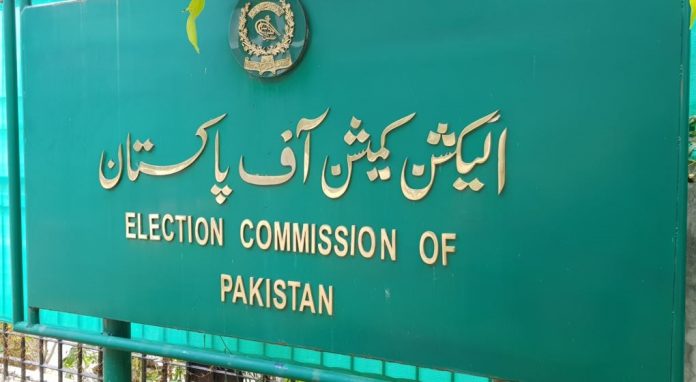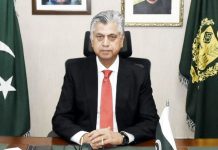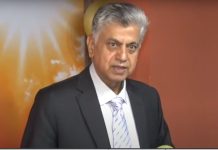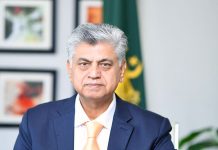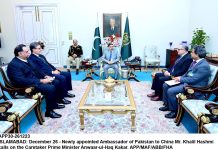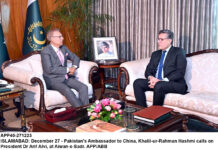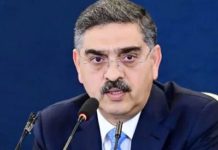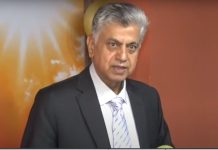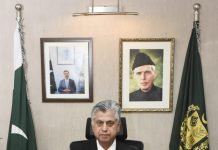
Recalling his visit to Turkey in January 2019, the prime minister expressed satisfaction that Pakistan-Turkey bilateral relations have transformed into a mutually beneficial strategic partnership, a statement issued by the PM Office here Tuesday said.
Prime Minister Imran Khan thanked President Erdogan for Turkey’s consistent support to Pakistan on issues of core national interest, and reaffirmed Pakistan’s steadfast support to Turkey on issues of its national interest.
He emphasized the importance of further strengthening the bilateral economic partnership and expressed the hope that the recently finalised Strategic Economic Framework (SEF) will play an instrumental role in this regard.
He said that he looks forward to President Erdogan’s visit to Pakistan for the next round of Pakistan-Turkey High Level Strategic Cooperation Council (HLSSC).
About Kashmir issue, he stated that India’s efforts to change the occupied valley’s demographic structure contravene numerous UNSC Resolutions, international law as well as India’s own prior commitments.
He emphasized that the dire human rights and humanitarian situation in Held Kashmir poses grave risks for peace and security in the region.
In this context, he called for immediate lifting of curfew and other restrictions; end to gross violations of human rights; and allowing the Kashmiris their inalienable right to self-determination as enshrined in the relevant UN Security Council resolutions.
During the meeting, the leaders recalled the historic fraternal ties between the two nations and reiterated their strong resolve to continue standing by each other in the face of all challenges.
Prime Minister Imran Khan also met President of the Swiss Confederation Ueli Maurer here wherein the two countries agreed to enhance bilateral cooperation in diverse areas, including political, trade and economic relations.
During the meeting held on the sidelines of 74th session of the United nations General Assembly, the two leaders discussed bilateral, regional and multilateral issues.
Prime Minister Imran Khan apprised the Swiss president of the current situation in the Indian-held Kashmir (IHK), especially the dire human rights and humanitarian situation. He emphasized the need to urgently lift the curfew and other restrictions that have continued for 50 days in Kashmir.
He underscored the importance of resolution of the Jammu and Kashmir dispute for safeguarding peace and security in the region.
Separately, Prime Minister Imran Khan met Iranian president Hassan Rouhani and discussed issues of importance relating to Pak-Iran bilateral relationship besides several international and regional matters.
Speaking at the UN Climate Action Summit in New York, Prime Minister Imran Khan urged for ‘bold leadership’ to fight climate change and its pervasive impacts and called for partnerships as no country could address this challenge alone.
He termed climate change as one of the defining issues of our time, a statement issued by the PM Office here Tuesday said.
The prime minister drew attention to the ‘Billion Tree Tsunami’ project in Khyber Pakhtunkhwa, which won the distinction of being the first entity to meet and surpass pledges under the global “Bonn Challenge”.
He referred to Pakistan’s ‘Eco-System Restoration Initiative’ (ESRI), built upon successes of the ‘Billion Tree’ project.
As part of this umbrella initiative, the government of Pakistan plans to plant 10 billion trees in Pakistan in the next four years and usher a green revolution in the country through wide ranging eco-system related actions.
The prime minister shared his three-point visionary agenda with the world leaders, encompassing implementation of global commitments, mobilising finance and facilitating access to and sharing of technology.
UN Secretary General Antonio Guterres had convened the summit aimed at re-energising political commitments by world leaders and to encourage raising ambition by countries, including through social and political drivers to overcome the challenges of climate change.


